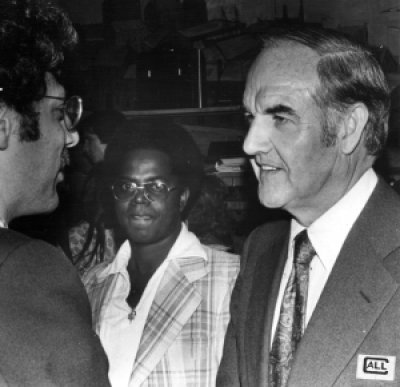
This commentary was published earlier at The Huffington Post.
The editors of The New York Times appear to have forgotten an important principle: the First Amendment is for all of us, and does not grant any special privileges to the institutional press. Thus if Edward Snowden is prosecuted for leaking classified documents about the National Security Agency’s secret surveillance programs, the news organizations that published those documents could face criminal charges as well.
The possibility that journalists could be in legal jeopardy for doing their jobs seems not to have occurred to whoever wrote an editorial in today’s Times, which argues that Snowden should be prepared to pay the price for civil disobedience by way of his leaks to The Guardian and The Washington Post.
Though the editorial dismisses the absurd notion that Snowden has committed treason, it concludes with this observation, which comes across as semi-sympathetic but contains toxic implications: “Mr. Snowden may well be going to jail for exposing practices that should never have been secret in the first place.”
In fact, if Snowden, as seems likely, is charged under the Espionage Act of 1917, there is nothing to stop the government from going after The Washington Post as well — or The Guardian, if someone would like to seek extradition of Glenn Greenwald, who broke the story, and his editor, Alan Rusbridger.
American journalists in these situations operate on the premise that they are free to publish information even if the source or sources who gave it to them violated the law in obtaining it. That’s largely true — First Amendment protections against censorship are extraordinarily high. The corollary, though, is that there may be consequences to be paid post-publication.
The best-known example is the Pentagon Papers, a case that should be near and dear to the hearts of Times editors. In a 6-3 decision, the U.S. Supreme Court ruled that the Times and the Post could not be prevented from publishing the government’s secret history of the Vietnam War.
But as civil-liberties lawyer Harvey Silverglate pointed out in a 2006 article for The Boston Phoenix, five of the nine justices essentially invited the government to file charges against the Times and the Post after publication — and the Nixon administration was preparing to do just that before it got caught up in the burgeoning Watergate scandal.
Silverglate was concerned that the Times faced possible charges under the Espionage Act for revealing the existence of the Bush administration’s warrantless wiretapping program. Even though the program illegally circumvented the Foreign Intelligence Surveillance Court, then-president George W. Bush called the Times’ reporting “a shameful act” — and Gabriel Schoenfeld, writing in Commentary, was just one on the neocon right who argued that the Times should be prosecuted.
More recently, the Times published many of the WikiLeaks documents exposed by Bradley Manning, who is now on trial and who may face a life sentence. And in 2010 John Cook posted a short piece in Gawker making the commonsense observation that the Times‘ potential liability was precisely the same as that of WikiLeaks founder Julian Assange, who had been targeted by Attorney General Eric Holder. Cook wrote:
So if it was a crime when Assange obtained the database, why wasn’t it a crime when the Times did? The Espionage Act makes no distinctions when it comes to sources of defense information: It’s a crime to “obtain [it] from any person, or from any source whatever.” Assange got it from Manning, the Times got it from the Guardian; both transactions are equally criminal under the act.
More than a year ago, I argued that President Barack Obama was engaged in a “war on journalism” stemming from his administration’s obsession with rooting out leakers. Recently we learned that the Justice Department had spied on the Associated Press and on Fox News reporter James Rosen, and had even gotten a judge to sign a search warrant identifying Rosen as a criminal co-conspirator. Now U.S. Rep. Peter King, R-N.Y., is calling for journalists to be prosecuted for publishing the NSA documents leaked by Snowden.
This is a moment of great peril for journalism. With 56 percent of Americans saying they don’t mind if the government monitors their phone records, public opinion is hardly on the side of whistleblowers and the news organizations that work with them.
Whether we approve of everything Edward Snowden did or not, The New York Times and others in our craft ought to show more solidarity. If he is in trouble, so are all of us.



